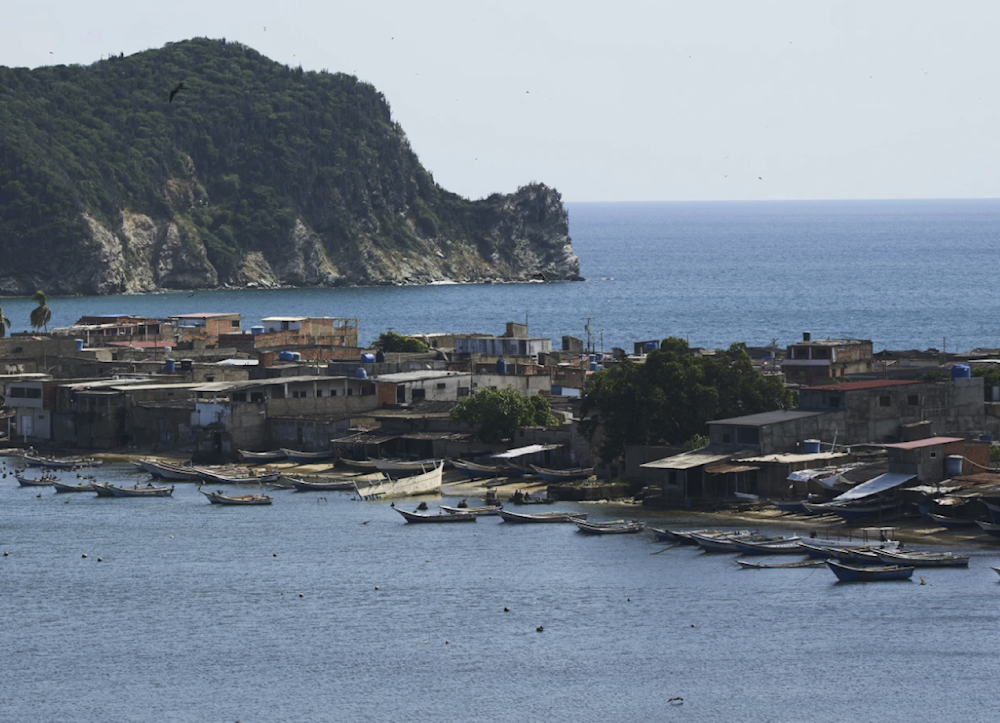US special ops. expand Caribbean mission near Venezuela
US special ops helicopters and B‑52 bombers flew near Venezuela as Washington escalates maritime and aerial operations against alleged narcotics trafficking networks.
-

Boats are anchored off El Morro de Puerto Santo on Venezuela's Paria Peninsula on September 14, 2025. (AP)
The US military has deployed Special Operations aviation assets to conduct operations in Caribbean waters, reportedly flying within 90 miles of Venezuela’s coast, as Washington expands its mission to counter alleged narcotics trafficking.
A visual analysis published by The Washington Post identified MH‑6 Little Bird and MH‑60 Black Hawk helicopters conducting training flights off Trinidad’s northeast coast, which likely brought them close to Venezuela’s maritime zone. A US government source confirmed the flights were training efforts to maintain readiness.
The aircraft are likely operated by the 160th Special Operations Aviation Regiment, a unit that supports elite ground forces such as Navy SEALs and Green Berets. Experts note that the use of “Little Birds", specialized for insertion and close air support, raises the possibility of future ground operations.
Lethal, unfounded strikes at sea, CIA authorization
In tandem with aerial activity, US officials say at least five vessel strikes targeting suspected narcotics shipments have occurred in recent weeks in international waters, resulting in 27 fatalities. President Donald Trump confirmed authorization of CIA covert operations inside Venezuela.
Although the Pentagon has characterized the action as part of an “armed conflict” with drug networks, critics argue the strikes amount to extrajudicial killings. A bipartisan Senate effort to rein in the lethal operations did not pass.
Naval surge and special ops base ship deployed
A broader US maritime presence now includes submarines, destroyers, and F‑35 fighters deployed near Puerto Rico. Strategic B‑52 bombers are also patrolling the region.
Additionally, imagery shows the MV Ocean Trader, a vessel configured as a floating Special Operations base, operating near Trinidad and St. Croix. It is believed to support helicopter operations with refueling and personnel staging capabilities.
Other movements include the deployment of C‑17 Globemaster aircraft to St. Croix, with connections to Fort Campbell, Kentucky, home base for the 160th.
Operational hazards & regional reaction
Venezuela possesses advanced Russian-made air defenses, including S‑300 surface-to-air systems and mobile short-range anti-aircraft systems. Analysts warn that helicopters entering land territory are especially vulnerable to shoulder-fired weapons (e.g., SA‑24) and ground fire.
The Pentagon declined comment, with press secretary Kingsley Wilson stating, "The Department will not respond to speculation about military operations based on analysis by ‘experts.’”
Meanwhile, critics question the lack of transparency in identifying strike victims and the justification for lethal force rather than maritime interdiction. Regional governments and international observers have voiced concern about escalation and violations of sovereignty.

 3 Min Read
3 Min Read








